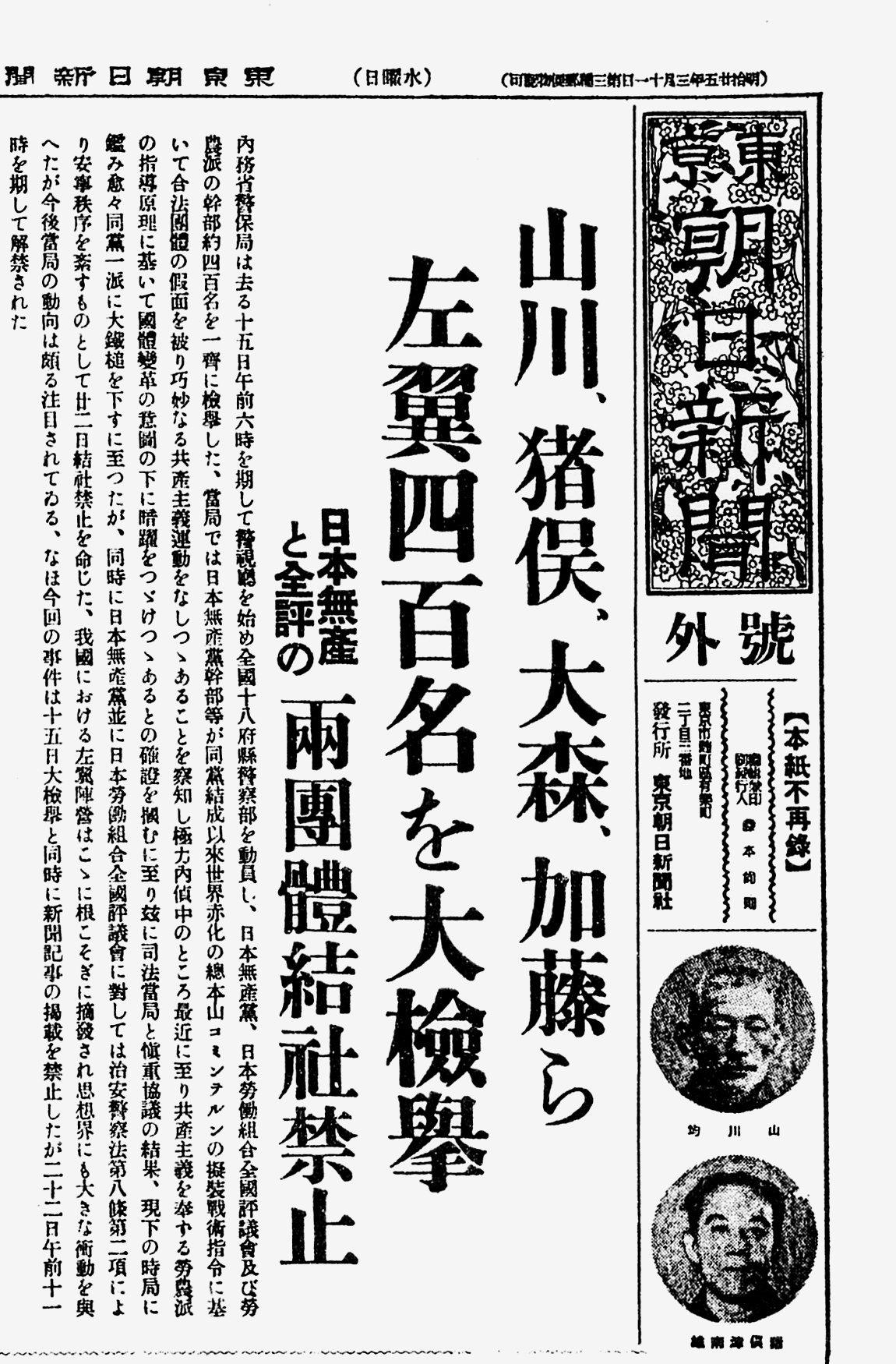Popular Front Incident on:
[Wikipedia]
[Google]
[Amazon]
 The refers to the
The refers to the
 The refers to the
The refers to the Imperial Japanese
The Empire of Japan, also known as the Japanese Empire or Imperial Japan, was the Japanese nation state that existed from the Meiji Restoration on January 3, 1868, until the Constitution of Japan took effect on May 3, 1947. From 1910 to 19 ...
government's suppression of a perceived threat from socialists and communists after the fall of Nanjing
Nanjing or Nanking is the capital of Jiangsu, a province in East China. The city, which is located in the southwestern corner of the province, has 11 districts, an administrative area of , and a population of 9,423,400.
Situated in the Yang ...
during the Shōwa period
Shōwa most commonly refers to:
* Hirohito (1901–1989), the 124th Emperor of Japan, known posthumously as Emperor Shōwa
** Shōwa era (昭和), the era of Hirohito from 1926 to 1989
* Showa Corporation, a Japanese suspension and shock manufactu ...
. During the incident, approximately 400 people were arrested by the authorities between December 1937 and February 1938. Amongst those arrested during the incident were Kanson Arahata, Saburō Eda, Ryōkichi Minobe, Itsurō Sakisaka, Kōzō Sasaki, Mosaburō Suzuki, Minoru Takano, and Hitoshi Yamakawa.
See also
*Japanese dissidence during the Shōwa period
Political dissidence in the Empire of Japan covers individual Japanese dissidents against the policies of the Empire of Japan.
Dissidence in the Meiji and Taishō eras High Treason Incident
Shūsui Kōtoku, a Japanese anarchist, was critica ...
* Yokohama Incident
References
{{Reflist Political repression in Japan Political and cultural purges Anti-communism in Japan 1937 in Japan 1938 in Japan December 1937 in Asia January 1938 February 1938 Democratic backsliding in the interwar period